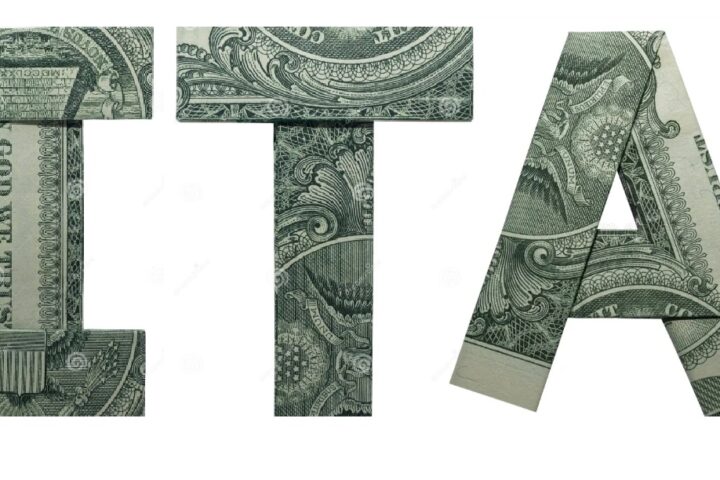Five Ways You Can Fight When You Owe the IRS a Tax Debt Too Big to Pay
Do you owe the IRS more than you can pay? Choosing the correct method of relief when you can’t pay your taxes can eliminate much or all of your tax debt—which can amount to thousands, even tens of thousands, of dollars—and help you get back on track financially.
If your tax bill has exploded beyond what you can pay, you’re probably already feeling the hot breath of the IRS. At this point, you need to consider your options for how to reduce or eliminate your tax bill.
If you have thought about bankruptcy, you need to be aware of its limitations. Tax debts are particularly sticky—many of them stay with you even after the bankruptcy process is complete.
And it’s important to know that bankruptcy is not your only recourse. The IRS gives you four avenues of relief to help you get out of tax debt. Depending on your circumstances, one or more of these IRS methods could entirely eliminate that horrible tax cloud hanging over your head.
Alternatives to Bankruptcy When You Owe the IRS and Can't Pay
The IRS gives you four avenues of relief when your tax debt is too big for you to pay:
- Offer in compromise. If you cannot pay your full tax liability—or if doing so would create a hardship—you may qualify to reduce your tax bill through an offer in compromise. Under this process, you determine an amount that you can pay using an IRS formula that considers your income and assets. You then submit this offer to the IRS and, pending IRS approval, you have up to 24 months to pay off the reduced amount, satisfying your debt in full.
- Installment agreement. An installment agreement or payment plan gives you up to 72 months of extra time to pay your tax debt. If you owe less than $50,000 in combined taxes, penalties, and interest, you can make this request using a simplified online form.
- Abatement of penalties. You can use this strategy to abate (eliminate) the penalties the IRS dumped on you in addition to the taxes you owe. There are a number of grounds you can use to make this claim, such as undue economic hardship, the loss of property in a natural disaster, or a recent death in the family. There is also a special abatement for those with a good history of compliance called the “first-time abate.”
- Innocent spouse relief. Normally, both spouses are equally responsible for the payment of taxes on a joint return, but innocent spouse relief will remove much or all of your liability and pin it solely on your misbehaving spouse (or ex-spouse). This might apply, for example, if your spouse operates a business that you do not participate in, and your spouse incorrectly reports that business’s income and losses.
The Bankruptcy Option
Bankruptcy is not a simple process and has many lingering effects, such as the potentially decade-long hit to your credit. However, bankruptcy can be the perfect tool in the right situation—and it can permanently eliminate some of your income tax liabilities, including penalties and interest.
The following rules determine whether you can discharge your income tax debt in bankruptcy. You have to meet all three rules to qualify:
1. Debts must be more than three years old. You have to wait at least three years after the filing deadline for the tax years at issue (normally April 15 for calendar year taxpayers) before you file your bankruptcy petition. In other words, if you file your petition on April 15, 2016, you can discharge tax debts for tax years 2013 and earlier. But note that an extension pushes your filing deadline to October 15. So if you got an extension in 2013, you must wait until October 15, 2016, to file your bankruptcy petition before you can discharge tax debts from 2013.
2. You must file all tax returns. You have to wait at least two years after you filed your tax return before you file your bankruptcy petition. So what happens if you didn’t file a return for a year? To discharge that debt, you must file that return now and then wait for two years before you file for bankruptcy.
As you can see, timing is important. If you want to ensure that the bankruptcy proceeding will clear your tax debts, you must
No fraud. Bankruptcy will not discharge your debt if you committed fraud or willfully evaded taxes.
If your tax debt is out of control, don’t give up hope. You have options, and you can qualify for debt relief, through both the IRS and bankruptcy. The IRS options are easier on you and can provide excellent relief, depending on your circumstances. Contact Ken-Mar Tax for all back-tax relief.
Related posts about tax debts:
How to Get IRS Penalties Waived?
Common IRS Penalties
Can You Go to Jail for Not Paying RITA?
Owe Back Taxes? Scary Letters from the IRS? Your Options.
Small Business Tax Services
As an expert in small business tax services and tax consulting Ken-Mar Tax eats, sleeps and breathes small business tax strategies. Being an enrolled agent allows founder, Ken Weinberg, to represent you to the IRS - something only a CPA, tax attorney and Enrolled Agent can do. EAs are the only federally licensed tax practitioners who specialize in taxation and also have unlimited rights to represent taxpayers before the IRS. It also means he is continuously being updated on the new IRS tax codes and taking classes from the IRS that provide guidance on how to file returns so that they are not "flagged."
When you get your taxes prepared by Ken Mar Tax you also have the option to purchase the Tax Audit Protection Plan to avoid the extra costs of paying for audit representation. If you are audited by the IRS, State of Ohio or local taxing authorities, Ken-Mar Tax will meet with the taxing authorities on your behalf to negotiate a settlement for you. The fee covers all costs up to the Appeals level, including up to 15 hours of correspondence with the auditing party – either the IRS, State of Ohio or locality.








